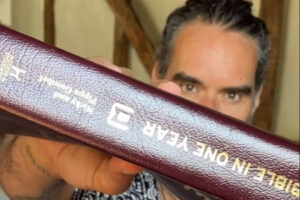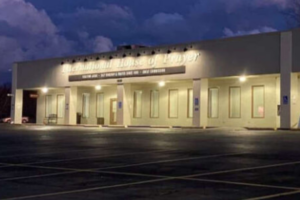Recent news that popular Christian comedian John Crist has been accused of—and admitted to—sexual harassment put the spotlight once again on sexual sin within the church.
This would not, of course, be the first time a prominent Christian figure has fallen from grace because of a moral failure. With the advent of the #MeToo movement, more stories of sexual abuse and harassment and even rape within the church have come to light. It should break our hearts that the body of Christ has failed to protect the most vulnerable among us and, at times, has even been complicit in covering up for abusers.
The good news is that these revelations, as painful as they are, have prompted churches and denominations to do more to protect people in their community who may fall prey to an abuser. Some churches are implementing measures such as background checks for volunteers and installing security cameras. Denominations also are setting up committees and encouraging member churches to treat any instance of sexual abuse as a crime and report it to the authorities instead of dealing with it internally.
Yet there remains the issue that these measures are largely reactionary, not preventative. Because how do you hedge against a sin that originates in the human heart? As the New Testament’s letter of James reads,
Let no man say when he is tempted, “I am tempted by God,” for God cannot be tempted with evil; neither does He tempt anyone. But each man is tempted when he is drawn away by his own lust and enticed. Then, when lust has conceived, it brings forth sin; and when sin is finished, it brings forth death (James 1:13-15).
Is there a better approach churches can take to dealing with sexual sin? James gives us the answer a few chapters later: “Therefore confess your faults to one another and pray for one another” (James 5:16a).
Now, many of us who come from the Protestant tradition have a troubled history with the idea of confessing our sins to another person. After all, the Protestant Reformation was ignited because of the Roman Catholic Church’s abuse of sacraments such as the confessional to exert power over the masses.
The Reformers rejected the idea that followers of Jesus needed a human mediator to receive forgiveness or commune with God. They believed, as we do to this day, that Jesus’ sacrifice was all-sufficient and, as the book of Hebrews teaches, he is our permanent intercessor before God. At the time, removing the requirement of regularly confessing one’s sin to a church official liberated the masses who for so long did not have direct access to God or Scripture.
However, by doing away with the confessional, Protestant and evangelical Christianity lost a deeply sacramental act of obedience. As noted above, the New Testament does enjoin Christians to confess their sins to one another—not so that we can receive forgiveness for our sins, but so we can enjoy spiritual accountability to God and one another.
As long as we are on this earth, followers of Jesus will have to contend with the reality of sin. As Paul writes in his letter to the Romans:
“For I know that in me (that is, in my flesh) dwells no good thing, for the will to do what is right is present with me, but how to perform what is good I do not find. For the good I desire to do, I do not do, but the evil I do not want is what I do. Now if I do what I do not want, it is no longer I who does it, but sin that lives in me” (Rom. 7:18-20).
We know that even the best among us, though made righteous before God through faith, are still sinners on any given day and need to learn the discipline of daily confession before God. There is no substitute for the humility that comes when we regularly acknowledge we are sinners and in need of God’s generous mercy. It prevents us from having a self-righteous attitude, which has damaged the witness of many modern churches.
The Protestant church could gain much from developing a culture and discipline of confessing our sins to one another. Imagine a church where everyone, including the senior pastor, was required to have a person to whom they confessed. For one, it would help avoid some of the major crises in the failures of leadership.
One option would be for congregations and denominations to create teams of ministers who are trained confessors in the church—again, not to forgive sins but to help people deal with their own sinfulness. These men and women could be sworn into confidentiality the same way psychiatrists, professional counselors and lawyers are bound by oath and law.
The confessor’s role would not be to simply hear confessions in privacy, but to counsel and exhort when a serious sin pattern is developing. This should all happen within the context of love, prayer and careful self-examination, which is the model Paul sets in his letter to the Galatians:
“Brothers and sisters, if someone is caught in a sin, you who live by the Spirit should restore that person gently. But watch yourselves, or you also may be tempted. Carry each other’s burdens, and in this way you will fulfill the law of Christ” (Gal. 6:1-2, NIV).
We cannot continue believing that there is such a thing as personal sin that affects no one else but us. All sin has a public dimension, and it impacts those around us, including our family, leadership team and congregation.
The consequences of unchecked sin in a Christian leader can be devastating. The victims of sexual abuse within the church suffer not only physical and emotional trauma but also spiritual trauma, which could lead some to leave the faith. This kind of moral failure also damages the church’s ability to witness to a watching world, particularly to young people who are already questioning the faith.
The church needs to demonstrate it is a place where sinners, not the self-righteous or morally perfect, can come and experience the grace of God and his salvation, and yet be a place where, no matter where we are in our walk with Jesus, we are all working out our salvation. {eoa}
The Most Rev. Joseph D’Souza is the founder of Dignity Freedom Network, an organization that advocates for and delivers humanitarian aid to the marginalized and outcasts of South Asia. He is archbishop of the Anglican Good Shepherd Church of India and serves as president of the All India Christian Council. The views expressed in this commentary do not necessarily represent those of Religion News Service.
© 2019 Religion News Service. All rights reserved.
See an error in this article?
To contact us or to submit an article





















